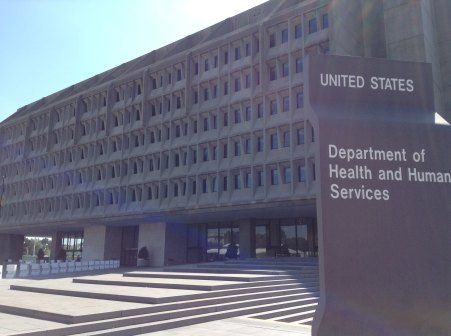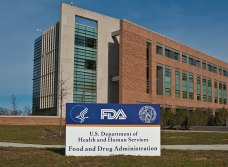FDA debuts ‘closed beta’ of precisionFDA platform
The Food and Drug Administration unveiled a “closed beta” version of a platform that allows researchers to share information that, eventually, could make it easier to tailor medical treatments to a patient’s genes.
PrecisionFDA, an open source cloud, gives users a place to upload their research around next-generation sequencing, which refers to advanced technology that can conduct quick, high-resolution sequences of DNA or RNA. Within the precisionFDA platform, users can occupy space on a cloud that others can’t access, though they can opt to share and compare their data in a communal area, said Dr. Taha Kass-Hout, the FDA’s chief health informatics officer.
“It’s a sandbox … It’s a place where community can come and work toward advancement of regulatory science for this really important work,” Kass-Hout said during a conference on NextGen sequencing at his agency on Thursday afternoon. PrecisionFDA was developed using agile concepts and its software would be available on GitHub, he added.
The platform is part of the FDA’s response to the White House’s Precision Medicine Initiative, launched by the president earlier this year to encourage research into the field.
PrecisionFDA will eventually allow researchers to upload and share three types of data, said Richard Daly, CEO of DNAnexus, which is assembling the infrastructure for this program:
- Reference genomes. Researchers compare these against other genome samples to help uncover genetic indicators that may predispose someone to a disease.
- Bioinformatics pipelines. After genes are sequenced, bioinformatics pipeline software helps make sense of the results. Daly said it’s like if someone cut out the sentences of all the books in a library, and these bioinformatics pipelines glue the sentences back together. But different pipelines may do that in different ways.
- Genomic data. This allows users to run data in different pipelines and compare results.
Kass-Hout was the brains behind an earlier agency project called openFDA — which released application programming interfaces, or APIs, to make it easier for programmers to get at agency data sets on drug adverse events, recalls and other topics. After openFDA launched, Kass-Hout was recognized for his efforts to work with members of the community to continuously develop the program. Daly said he’s done the same with precisionFDA.
“This is basically applying that highly successful strategy to precisionFDA,” Daly said. “The genius of what they’re doing is they’ve engaged the community by being genuinely responsive.”
Users can see the portal at precision.fda.gov, but must request access to upload their data. After Dec. 15, users will be able to run some analyses on their data, an FDA spokeswoman said.
“When this gets up and running, the FDA will be running the most advanced bioinformatics platform in the world,” Daly said.






